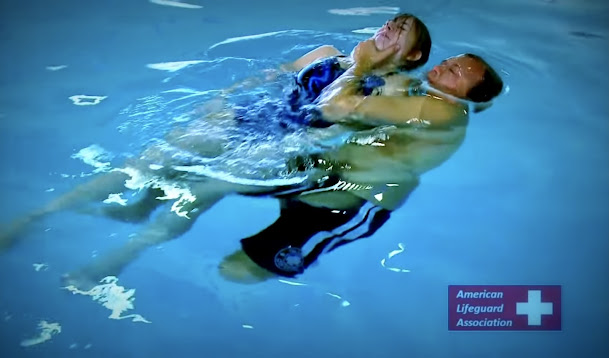Lifeguard certification is essential for ensuring water safety and enabling individuals to pursue a career in aquatic safety. But how long is a lifeguard certification good for? This article, branded by the American Lifeguard Association, will answer this question in detail, explaining the duration, renewal process, and benefits of maintaining an up-to-date certification.
Duration of Lifeguard Certification
The validity period of a lifeguard certification varies depending on the certifying organization and the specific type of certification. Generally, a lifeguard certification from the American Lifeguard Association is valid for two years. This standard ensures that lifeguards remain proficient in their skills and up-to-date with the latest safety protocols.
Factors Influencing Certification Validity
- Certifying Organization: Different organizations may have varying certification durations. The American Lifeguard Association, for example, offers a two-year certification.
- Type of Certification: Basic lifeguard certifications might have different validity periods compared to specialized ones, such as pool lifeguard or waterpark lifeguard certifications.
Would you like to read: how long is a lifeguard certification good for
Renewal Process for Lifeguard Certification
Maintaining a current certification is crucial for active lifeguards. The renewal process typically involves several steps to ensure that lifeguards are still competent and knowledgeable about current safety standards.
Steps to Renew Your Lifeguard Certification
- Enroll in a Recertification Course: Many organizations, including the American Lifeguard Association, offer recertification courses that refresh your skills and knowledge.
- Complete Required Training: These courses often include both classroom instruction and practical skill assessments to ensure lifeguards can perform essential duties.
- Pass the Recertification Exam: A written and practical exam is usually required to demonstrate proficiency.
- Update CPR/AED Certifications: Lifeguards must also renew their CPR and AED certifications, as these are integral parts of their skill set.
Benefits of Lifeguard Certification
Staying certified offers numerous benefits, both professionally and personally. Here are some key advantages:
Professional Advantages
- Job Opportunities: Many employers require a current lifeguard certification. Staying certified ensures you remain eligible for these positions.
- Career Advancement: Advanced certifications and specializations can lead to higher-paying roles and greater responsibilities.
- Professional Credibility: Being certified by a respected organization like the American Lifeguard Association enhances your professional reputation.
Personal Benefits
- Skill Maintenance: Regular recertification helps you maintain and improve your lifesaving skills.
- Confidence in Emergencies: Staying updated with the latest techniques ensures you are prepared to handle emergencies effectively.
- Contribution to Community Safety: Certified lifeguards play a crucial role in ensuring the safety of swimmers and other aquatic facility users.
How to Get a Lifeguard Certification
If you're interested in becoming a lifeguard, obtaining a certification is your first step. Here’s how you can get started:
Steps to Obtain a Lifeguard Certification
- Choose a Certifying Organization: The American Lifeguard Association is a highly regarded choice.
- Meet Prerequisites: These may include age requirements and swimming proficiency.
- Enroll in a Certification Course: These courses cover essential skills and knowledge.
- Complete Training: This involves both theoretical and practical training sessions.
- Pass the Certification Exam: Successfully passing this exam earns you your certification.
How to Find a Lifeguard Certification Course Near You
Finding a certification course near you is easy with resources provided by the American Lifeguard Association. Here are some steps to locate a course:
- Visit the American Lifeguard Association Website: Their website offers a comprehensive list of courses.
- Search for Local Courses: Use the search function to find courses in your area.
- Contact Local Aquatic Facilities: Many pools and aquatic centers offer certification courses.
- Check Online Options: There are also lifeguard online certificate courses available.
Importance of Recertification
Lifeguard recertification is vital for ensuring ongoing competence in lifesaving techniques and adapting to new safety standards. Regular recertification helps lifeguards stay informed about the latest developments in aquatic safety and enhances their ability to protect the public effectively.
Benefits of Regular Recertification
- Skill Enhancement: Regular training ensures skills remain sharp.
- Updated Knowledge: Recertification courses cover new techniques and protocols.
- Compliance with Regulations: Staying certified ensures compliance with local and national safety regulations.
Final Opinion
Understanding how long a lifeguard certification is good for and the importance of staying certified is crucial for anyone in the aquatic safety profession. With a certification from the American Lifeguard Association, you can be confident in your skills and knowledge, ensuring the highest level of safety for those you protect. Whether you're looking to get certified for the first time or renew your existing certification, staying informed and up-to-date is essential for a successful career in lifeguarding.












0 Comments